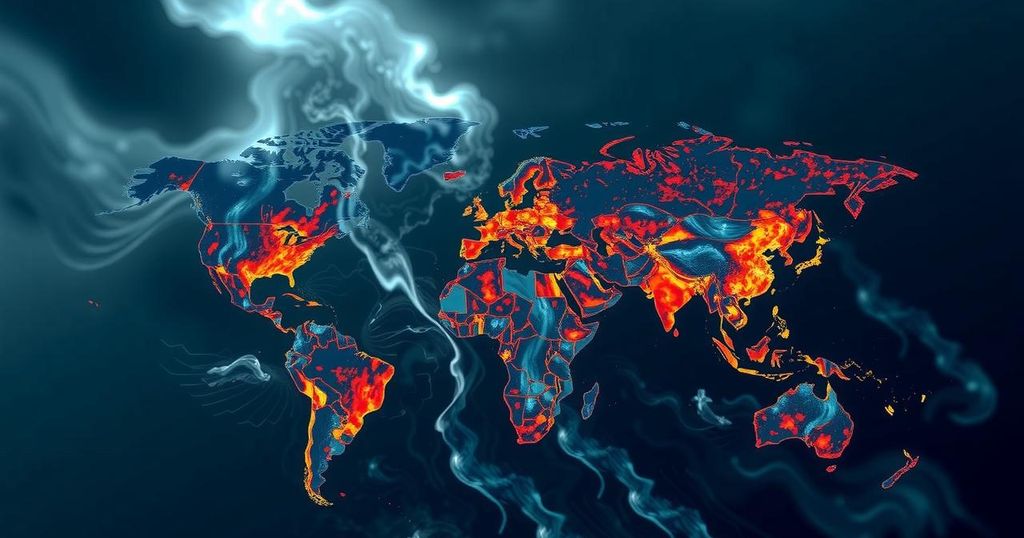Climate Change Intensifies Deadliest Weather Events: New Study Reveals

A recent study by the World Weather Attribution group reveals that human-caused climate change has intensified the ten deadliest weather events of the last 20 years, resulting in over 570,000 fatalities across Europe, Africa, and Asia. The research underscores the necessity for immediate action against fossil fuels to mitigate future suffering as extreme weather events become increasingly frequent and severe.
A recent analysis conducted by scientists from the World Weather Attribution (WWA) group at Imperial College London reveals that human-induced climate change has exacerbated the effects of the ten deadliest extreme weather events over the past two decades. These catastrophic events, which include storms, heatwaves, and floods across Europe, Africa, and Asia, have resulted in the loss of more than 570,000 lives. The study emphasizes the capacity of researchers to identify the influence of climate change on complex weather patterns by reanalyzing data related to significant weather occurrences since 2004. Dr. Friederike Otto, co-founder and lead of WWA, asserts the urgency for political leaders to transition away from fossil fuels, highlighting the continuing suffering attributed to ongoing combustion of oil, gas, and coal. The analysis identified that the most lethal event, a 2011 drought in Somalia, led to over 250,000 fatalities, further exacerbated by climate change-induced low rainfall. Notable mentions in the report include the catastrophic European heatwaves of 2015, 2022, and 2023, along with tropical cyclones affecting Bangladesh, Myanmar, and the Philippines, all intensified by climate change. The researchers caution that the actual death toll from these calamities could be significantly underestimated, particularly in impoverished regions where fatalities from heatwaves are frequently unrecorded. Furthermore, the pioneering research of Otto and Dutch climatologist Geert Jan van Oldenborgh has allowed for a more precise connection between global warming and specific weather phenomena by employing advanced atmospheric models. Roop Singh of the Red Cross Red Crescent Climate Centre underscores the necessity for resilient adaptation to climate change, highlighting that increasingly severe weather will occur with each incremental rise in global temperatures.
The growing link between climate change and extreme weather events has become increasingly evident in scientific research. As the global temperature rises due to human activities, severe weather patterns have become more frequent and intense. This research serves to illuminate the impacts of climate change on life-threatening events, demonstrating how past weather anomalies can be connected to anthropogenic climate alterations. The study undertaken by the WWA employs innovative modeling techniques to relate the frequency and severity of these weather-related catastrophes to climate change, establishing a baseline for understanding the implications of continued global warming. The collaboration between climatologists has opened new avenues for interpreting weather data and proposing effective responses to mitigate the consequences of further climate change.
In summary, the findings from the recent analysis conducted by scientists from the World Weather Attribution group highlight a disturbing correlation between climate change and the deadliest weather events over the last two decades, reinforcing the need for immediate action against fossil fuel dependency. As extreme weather becomes more common and fatal, governments and organizations must prioritize resilience strategies to protect vulnerable populations from the escalating effects of climate change. The urgency expressed by experts serves as a call to action, urging global leaders to confront the realities of our warming world and its likely catastrophic consequences.
Original Source: www.bbc.com






